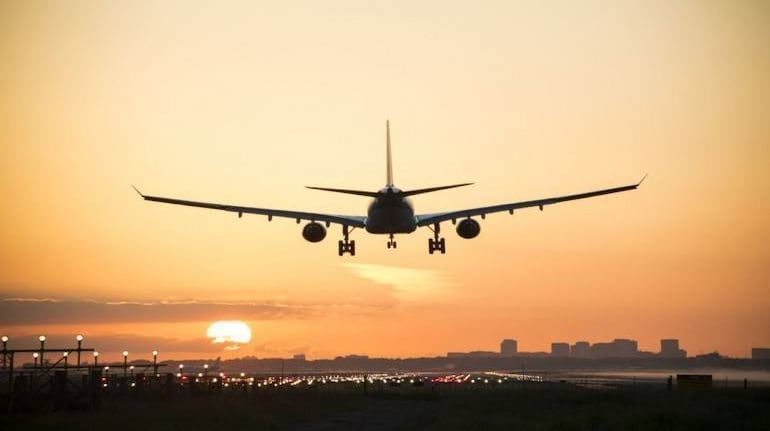



As we entered 2020, the order books with both Boeing and Airbus were brimming. Airbus was struggling to deliver the A321 from Hamburg due to issues with its supply chain while it continued to log orders for A321XLR, arguably its most successful launch. Boeing was no different — it continued to grapple with issues related to the B737MAX and was moving to advanced testing phase for the B777X. Then COVID-19 struck.
As it stands today, both Airbus and Boeing have shut production lines at many of their production sites, if not all. Airbus has decided to decrease the production rate of A320, A330 and A350, while Boeing had already stopped production of the grounded B737 MAX early this year. Airlines are already talking about delaying deliveries and a lessor or two have processed cancellation of orders.
An unlikely fallout of the crisis has been early retirements of old planes. If you fancied flying that B747-400 with KLM or the A340-600 with Virgin Atlantic, unfortunately, you can’t!
Premature Goodbyes
The latest announcement came from Lufthansa that it will retire over 30 aircraft prematurely, which includes the Airbus A380. The airline will retire six out of 14 A380s which were scheduled for retirement in 2022. Seven out of 17 A340-600s, five out of 13 B747-400s and 11 A320s out of 96 of such type with the airline. The airline will also retire three A340-300s, one of which is a regular to Chennai. Its subsidiary Eurowings will also retire 10 A320s and all operations of Germanwings will be consolidated under Eurowings. Austrian and Swiss – the two other airlines in the Lufthansa group will also see a reduced fleet count in months ahead.
KLM flew its last B747 flight on March 29. The airline operated 46 B747s over its history comprising the -200, -300 and -400. The last flight was the B747-400M, known as “Combi” – a passenger and freight variant. It had a large cargo door at the rear for freight loading. Only 63 of such type were ever built. Also to retire the B747 was Qantas – which retired all of its five aircraft.
Virgin Atlantic was the launch customer of the A340-600, once the longest commercial airliner in the world. The last few of the 19 A340-600s the airline operated were retired in March. While the airline has a history of getting an aircraft or two back from retirement, this time the airline said it won’t be possible.
American Airlines, which has the largest fleet in the world, is retiring 75+ B737-800s and the entire fleet of B757 and B767, ahead of schedule. The airline has 34 B757s and 14 B767s in its active fleet of nearly 900 aircraft. The airline will also retire all its 9 A330-300s.
Why are the airlines doing this?
The airlines do not see the capacity return to pre-COVID levels in a foreseeable future. What this essentially means is that airlines are expecting reduced frequency, termination of flights and pullout from destinations when things start returning to normal, translating into extra aircraft with the airline.
While older aircraft have higher operating costs due to higher fuel consumption over new-generation aircraft, sometimes it could be cheaper to operate them due to lower fuel prices. Airlines like Delta have gained profitability by adding older planes at cheaper rates. However, this time around we are talking of over-capacity and the need to scale down the fleet and the axe then falls on the older planes since they also have significantly higher maintenance requirements like the expensive “D” checks.
In most cases, except the A380s with Lufthansa, the wide-body aircraft have been in service for close to 20 years if not more. These planes were due for retirement in the next couple of years but have been advanced due to the impending crisis.
Will airlines in India retire planes?
India has one of the most modern fleets of aircraft across its airlines. Some of the oldest ones flying around are the B747s of Air India and the E145s of Star Air. Air India had already retired the double bogey A320s in its fleet and the oldest aircraft in IndiGo’s fleet is 12-year old, similar to one with GoAir. Spicejet – which took on lease over 30 ex-Jet Airways aircraft last year, has the B737 MAX on order, 13 of which were already delivered to the airline are grounded across the country. The B737NG – which Spicejet currently operates is a workhorse across multiple regions and cannot be classified as old. Vistara and AirAsia India – the two airlines from Tata stable also have a modern fleet of aircraft.
Most of the aircraft are leased and thus there could be cases where aircraft are re-delivered. While this is unprecedented, downturns in the past have seen lessors help airlines with cheaper rentals. With the current pandemic, a lower lease rental may not help an airline get the demand back and thus redelivery will likely be the only option left. It is for the lessor to see if these aircraft get scrapped or what happens to them since it is unlikely that there would be another airline willing to lease them!
(Ameya Joshi runs the aviation analysis website Network Thoughts. Ameya writes a lot on aviation.)
Discover the latest Business News, Sensex, and Nifty updates. Obtain Personal Finance insights, tax queries, and expert opinions on Moneycontrol or download the Moneycontrol App to stay updated!
Find the best of Al News in one place, specially curated for you every weekend.
Stay on top of the latest tech trends and biggest startup news.